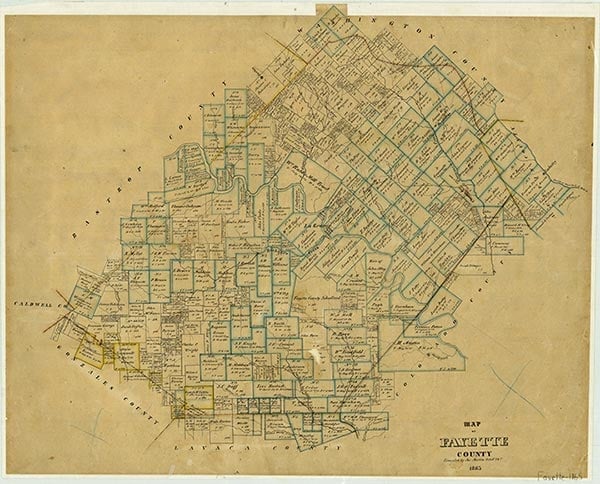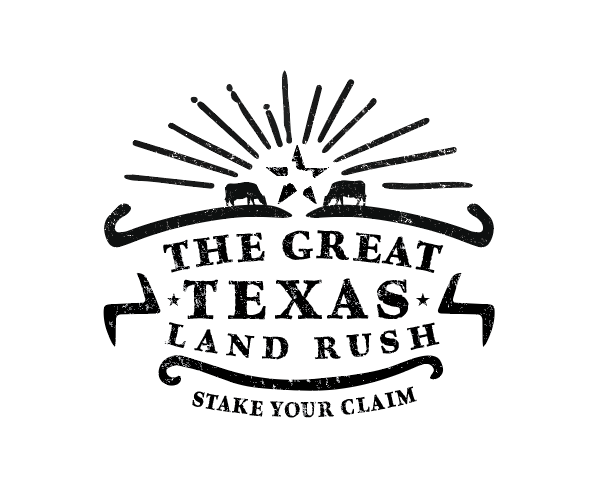Nassau

Nassau Farm, founded in 1843, was on the William Jack league in northeast Fayette County near Round Top. The plantation was owned by the Adelsverein, a society organized by German noblemen to promote immigration to Texas. Representatives of the society, Count Joseph of Boos-Waldeck and Count Victor of Leiningen, purchased the undeveloped league from Robert Mills on January 9, 1843, for seventy-five cents per acre. A working plantation was developed and named for Duke Adolph of Nassau, protector of the society. Boos-Waldeck purchased slaves and supplies in New Orleans, Galveston, and Houston. The slaves constructed a blacksmith shop, smokehouse, hay barn, stables, kitchen, quarters for themselves, and a house for the overseer. Fields were cultivated and planted at various times in corn, cotton, sugarcane, potatoes, and tobacco. Cattle and hogs were raised for the use of the plantation and for sale. A high oak-covered hill one-quarter mile from the farm was selected as the site for the manor house. For practical and economic reasons the German carpenters built in the regional style. The two-story log house with dogtrot had porches on both sides, stone fireplaces at each gable end, and glass panes in four downstairs windows. In May 1845 the German geologist Ferdinand von Roemer reported that the house was "one of the best constructed and most comfortable" he had seen in Texas, that 420 acres were fenced and under cultivation, and that the farm had nineteen slaves, one family of whom worked as house servants.
Nassau Farm had been considered as a possible base for newly arrived immigrants and some permanent settlement, but the society sent the settlers to New Braunfels, Fredericksburg, and other locations instead. The farm was used only as a pleasure retreat for the officers and as a hideaway from their creditors. Prince Carl of Solms-Braunfels, commissioner general, and his successor, John O. Meusebach, spent many days at Nassau and wrote long reports to Germany. The effort to operate a working farm was not entirely successful, due to inexperience and mismanagement by the various directors. Through a complex series of conveyances the debt-ridden society sold the league, the farm with all its improvements, buildings, equipment, and twenty-five slaves, and the manor house with personal possessions to Otto von Roeder. Roeder began selling off parcels of the league in 1850; the first sale was to Peter Carl Johann von Rosenberg, who purchased 800 undeveloped acres and the manor house. Further legal complications developed when the Bexar District Court ordered the sheriff of Fayette County to sell the league to the highest bidder in order to satisfy creditors of the society. On May 3, 1853, the league was sold for four cents an acre to James A. Chandler, who filed suit against Roeder, Rosenberg, and Hamilton Ledbetter in United States district court for title and possession. The decision for the defendant was appealed by the plaintiff in error to the United States Supreme Court, but the case was returned to the District Court in 1861. Finally, in June 1868, Chandler recovered judgment against Roeder and possession of lands held by Roeder and others who had purchased acreage from him after the filing of the suit.
Daphne Dalton Garrett | © TSHA

Adapted from the official Handbook of Texas, a state encyclopedia developed by Texas State Historical Association (TSHA). It is an authoritative source of trusted historical records.

- ✅ Adoption Status:
- This place is available for adoption! Available for adoption!
- Adopted by:
- Your name goes here
- Dedication Message:
- Your message goes here
Belongs to
Nassau is part of or belongs to the following places:
Currently Exists
No
Place type
Nassau is classified as a Town
Associated Names
- (Groos)
Location
Latitude: 30.04716510Longitude: -96.63747400
Has Post Office
No
Is Incorporated
No
